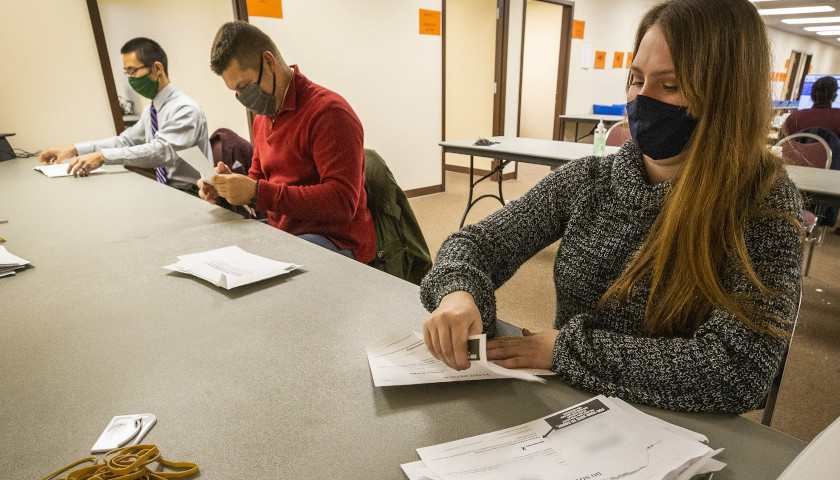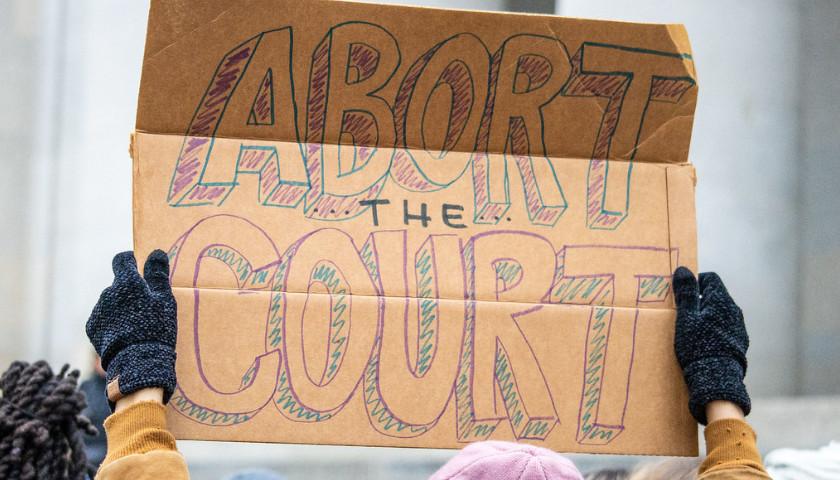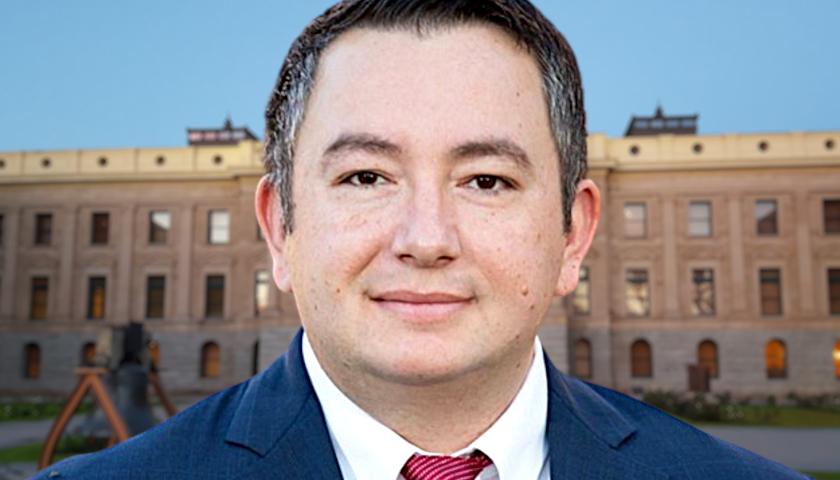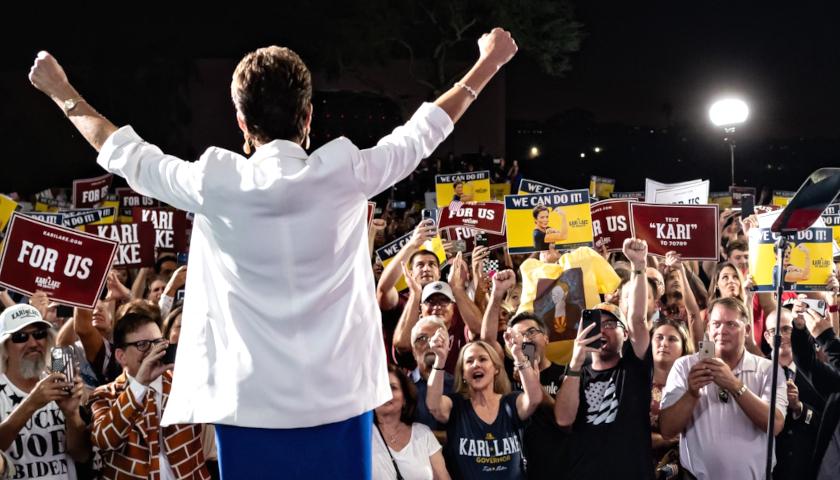Conservative commentator and filmmaker Dinesh D’Souza recently released a documentary, 2,000 Mules, which features the work of True the Vote tracking GPS cell phone locations from around the 2020 election period to track what they have named “mules,” people purportedly illegally transporting hundreds of thousands of ballots from left-leaning nonprofits and depositing them in unmonitored drop boxes in several key swing states, including Arizona. Arizona Attorney General (AG) Mark Brnovich may have already prosecuted one of the mules discussed in the documentary, a Democratic former official in San Luis, and he is currently litigating in court with Democratic Secretary of State Katie Hobbs over her attempts to allow unmonitored drop boxes in the state Elections Procedures Manual (EPM).
In the documentary, a whistleblower whose identity is disguised discusses a prominent Democratic official in San Luis — which is a small town of about 25,500 located in Yuma County — who engaged in ballot harvesting and even enlisted her to assist. Last year, Brnovich’s office prosecuted Guillermina Fuentes, who was a previous mayor of San Luis, a Democratic precinct committee person, and a member of the Gadsden Elementary School Board. A grand jury indicted her in December on one count of ballot abuse, also known as ballot harvesting, for collecting four ballots from people and turning them in. She has a change of plea hearing scheduled for June 2.
The Arizona Sun Times was unable to get confirmation from the AG or the Yuma County Sheriff’s Office (YCSO) whether this was the same person.
Brnovich sued Hobbs last month for not complying with his requested legal changes to her draft 2022 EPM, which includes permitting unmonitored ballot drop boxes. He filed an additional brief on May 6 that listed 13 changes Hobbs has failed to make in order to comply with the law, including a significant section addressing unmonitored ballot drop boxes. He pointed out how allowing them directly violates ARS 16-1005(E), which makes it a class 5 felony for “a person or entity” to serve “as a ballot drop off site, other than those established and staffed by election officials.”
He also objected to Hobbs’ draft EPM allowing county officials to ban others from coming near the ballot drop boxes — which would prevent observers from watching. Her draft EPM says the officials “may restrict activities that interfere with the ability of voters and/or staff to access the ballot drop-off location free from obstruction or harassment.” Brnovich said the provision is both “both overbroad and vague,” warning that “the terms ‘activities,’ ‘obstruction,’ and ‘harassment’ are not defined and could be read to encompass constitutionally and statutorily protected activities, such as electioneering.” It could conflict with ARS 16-411(H), which permits electioneering outside of 75 feet from polling locations.
Both the Arizona Republican Party and leading Arizona gubernatorial candidate Kari Lake also sued Hobbs over allowing unmonitored ballot drop boxes in the EPM. The reason the EPM must be updated every two years is in order to comply with new laws passed by the state legislature, which has passed a flurry of election integrity laws since the 2020 presidential election. If the EPM does not comply with the law, election officials who violate it are liable for crimes, Brnovich told Hobbs previously. Brnovich objected to unmonitored drop boxes in 2019 in Hobbs’ draft EPM but was only able to stop her from deploying mobile unmonitored drop boxes. Hobbs has until May 20 to respond to Brnovich’s latest filing.
The YCSO may also be investigating some of the voter fraud allegations in 2000 Mules. The office said in a press release on May 11 that it was investigating 16 cases of voter fraud from the 2020 election and leading up to the 2022 election. The crimes include impersonation fraud, which can be “voting in the name of other legitimate voters and voters who have died or moved away.”
The YCSO is also looking into incidents of false registrations, which are done by “outreach groups” that are paid and use a “real or fake name, birth date, or address.” Some involve duplicate voting, “submitting multiple votes or registering in multiple locations and voting in the same election in more than one jurisdiction or state.” And some involve the fraudulent use of duplicate ballots, which could mean requesting ballots in the name of a voter and voting them without their knowledge, getting the ballot from the voter and filling it out for them including forging their signature, or telling the voter who to vote for.
Other problems Brnovich identified in his brief were the EPM’s failure to prohibit county recorders from extending deadlines without court approval, failure to require signature verification for non-mailed early ballots, illegally including a mandatory multi-agency and extra-statutory jail voting program, and failure to include the requirement that voters vote in their precinct. Brnovich won a case at the Supreme Court regarding that last requirement, upholding Arizona’s law prohibiting voting outside the precinct where a voter lives in Brnovich v. DNC.
Hobbs filed 12 bar complaints against Brnovich and his staff attorneys over his conflicts with her on election integrity, which were all dismissed.
– – –
Rachel Alexander is a reporter at The Arizona Sun Times and The Star News Network. Follow Rachel on Twitter. Email tips to [email protected].








